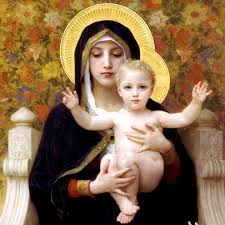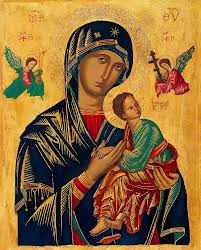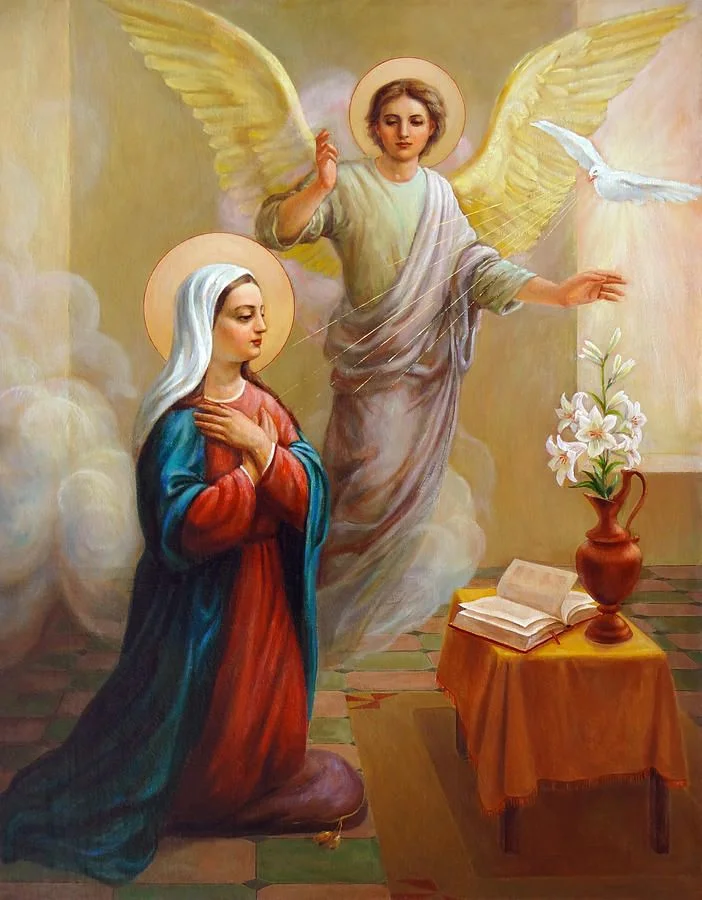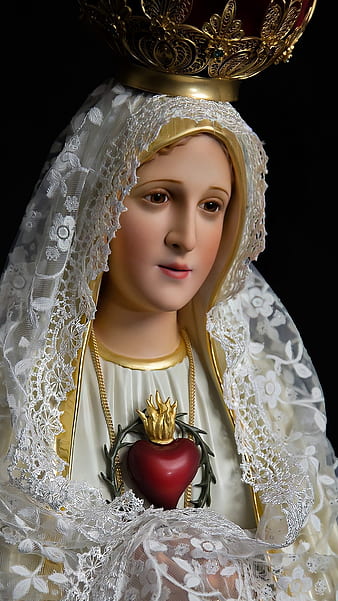The Intercessory Role of the Blessed Virgin Mary in Catholic Theology
This article explores the concept of intercession, specifically focusing on the Blessed Virgin Mary's role within Catholic theology. Intercession, in a religious context, refers to the act of one person praying on behalf of another. In Catholic belief, Mary's intercession holds unique significance due to her relationship with Jesus Christ. This exploration will draw upon biblical accounts, theological doctrines, and devotional practices to illuminate Mary's intercessory power and its implications for Catholic faith and practice.
The Theological Foundation of Marian Intercession
The Catholic Church views Mary not merely as the mother of Jesus but as the "Theotokos," or God-bearer, a title reflecting her central role in the divine plan of salvation. This unique relationship provides the theological basis for her intercessory power. The concept of intercession aligns with the principle of communion of saints, where believers intercede for one another, and ultimately, all prayers are directed toward God. Mary's unique position, however, is believed to enhance the effectiveness of her prayers. This can be understood through the lens of relational theology, emphasizing the importance of relationships within the divine economy. Mary's intimate relationship with Jesus, her Son, is seen as a conduit for bringing humanity's needs before God.
Biblical and Theological Evidences of Intercession
Several biblical passages illustrate Mary's intercessory role. The Wedding at Cana (John 2:1-11) serves as a prime example. Mary's awareness of the wedding party's need and her subsequent appeal to Jesus highlight her compassion and her confidence in her Son's ability to provide. Jesus' response, performing his first miracle, reinforces the efficacy of her intercession. This episode illustrates the principle of divine responsiveness to prayer, mediated through Mary's act of intercession. This event exemplifies the model of "divine pedagogy," where God uses events to instruct and enlighten humanity.
Another pivotal moment is at the foot of the Cross (John 19:26-27), where Jesus entrusts his mother to John, establishing Mary as the mother of all believers. This act signifies Mary's ongoing spiritual motherhood and her continuous intercession for the Church and its members. This event can be analyzed through the lens of "vicarious suffering," where Mary shares in the suffering of Christ and thus empathizes deeply with the struggles of humanity, making her a powerful intercessor.
The Catechism of the Catholic Church further supports the doctrine of Marian intercession, emphasizing that invoking Mary's intercession is an act of acknowledging our dependence on God's mercy and recognizing Mary's special relationship with the divine.
Marian Intercession in Catholic Practice and Devotion
The efficacy of Marian intercession is reflected in various Catholic devotions. The Rosary, a contemplative prayer focused on the mysteries of Christ's life, integrates petitions for intercession through Mary. This devotional practice can be analyzed using the framework of "spiritual exercises," designed to cultivate spiritual growth and a deeper relationship with God through Mary's mediation. Similarly, liturgical practices, such as the Marian feasts and the Litany of Loreto, formally recognize and invoke her intercessory role.
Numerous saints, such as St. Louis de Montfort, have written extensively on the power of Marian intercession, emphasizing its role in spiritual growth and closeness to Christ. Their theological reflections provide additional insights into the depth and significance of this concept within the Catholic tradition. These writings offer valuable examples of "spiritual direction" and its practical application to the faith.
Mary's Intercession: Scope and Significance
The scope of Mary's intercession is believed to encompass all aspects of human life—spiritual, physical, and emotional. Her intercession is not understood as replacing our own direct relationship with God, but rather as complementing and strengthening it. It is a form of spiritual mentorship and guidance, wherein Mary guides us towards a deeper relationship with God, mirroring the concept of "spiritual companionship." The belief in the miraculous nature of her intercession stems from the understanding of God's power and Mary's privileged position within the divine economy.
The depiction of Mary in Revelation 12:1-6, as the "woman clothed with the sun," signifies her ongoing intercession for the Church and humanity throughout history. This depiction demonstrates the concept of "eschatological hope," representing Mary's continued role in the journey towards salvation. The countless testimonies of miraculous interventions attributed to Mary's intercession underscore the faith-based conviction in the efficacy of her prayers.
Conclusions and Recommendations
The belief in the Blessed Virgin Mary's intercession is a central tenet of Catholic faith, rooted in theological doctrine, biblical accounts, and centuries of devotional practice. Understanding this belief requires an appreciation of Catholic theology, particularly the concepts of the communion of saints, divine pedagogy, vicarious suffering, spiritual exercises, and spiritual companionship. Further research could explore the sociological and psychological aspects of Marian devotion, examining the impact of Marian intercession on the lives of believers and its role in shaping religious identity and community. This research could employ qualitative methodologies such as interviews and case studies to gather personal testimonies and explore the lived experiences of those who invoke Mary's intercession. Furthermore, comparative theological studies could examine the concept of intercession in other religious traditions to provide a broader understanding of the phenomenon. The practical application of the understanding of Marian intercession lies in fostering a deeper relationship with God through prayer and devotion, enhancing one's spiritual growth, and cultivating a spirit of compassionate service to others.
Reader Pool: What are your insights on the effectiveness of Marian intercession in fostering spiritual growth and community building within the Catholic Church?
```






